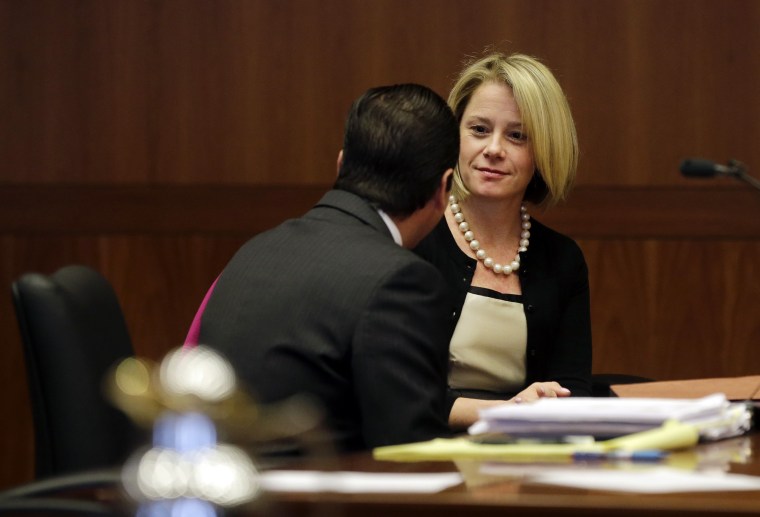Bridgegate is back.
The scandal that has dogged New Jersey Gov. Chris Christie for years—and undercut his failed presidential bid before it even began—will be given new life on Monday when the trial of two of the Republican’s former allies gets under way with opening arguments.
Related: Chris Christie Aide Accused Him of Lying on Bridgegate, Documents Say
It’s been three years since the infamous lane closures—allegedly ordered by Christie staffers for political retribution—caused a crippling traffic jam on the George Washington Bridge for days. Here’s what you need to know about the trial that everyone’s going to be talking about:
1. Who's on Trial?
Two of Christie’s former allies—his ex-deputy chief of staff Bridget Anne Kelly and his former top Port Authority official Bill Baroni. Last May, both pleaded not guilty on charges related to the lane closure. Kelly is the one who sent the now-infamous Aug. 13, 2013 email in which she declared, “Time for some traffic problems in Fort Lee.”
Baroni, meanwhile, argued at the time that the lane closures were part of a traffic study; federal authorities called this an excuse to cover up their plan to punish Democratic Fort Lee Mayor Mark Sokolich for not endorsing Christie’s re-election bid.
Related: Judge Orders Feds to Release List of Bridgegate Conspirators
Meanwhile, David Wildstein—another one of Christie’s former allies and a Port Authority official—has already pleaded guilty in connection with the scheme, and is expected to testify against Baroni and Kelly. Wildstein, who was the recipient of Kelly’s email, has acknowledged conspiring with Kelly and Baroni to close the lanes to punish Sokolich.
2. What will happen on Monday?
Opening argument begins, and the trial is expected to last about six weeks.
3. What about Chris Christie?
All along, Gov. Christie has maintained that he had no knowledge or involvement in the lane closures. However, Alan Zegas, Wildstein’s attorney, has previously said that “evidence exists” showing Christie was aware of the lane closures as they were happening. What that evidence is, and if it exists, remains to be seen.
The governor said late last month that he will testify if he is subpoenaed during the trial. Defense attorneys have said they aren’t ruling out calling on the governor.
Related: Christie on Former Port Authority Chairman: 'No Idea ... That He Did Anything Wrong'
Even Republican presidential nominee Donald Trump has weighed in on the scandal, insisting during the primaries that Christie (who has since endorsed Trump) “totally knew about” the scheme and that “there’s less than one percent chance” the governor was unaware.
4. The Biggest Question
Exactly how much Christie did and did not know. Last month, court filings were released showing former Christie aide Christina Genovese Renna saying in a text message that the governor “flat out lied” about senior staffers not being involved in the scandal.
5. The Best Case For Christie
We still don’t know who the mastermind behind the plan was and who gave the final order. Even if Christie didn’t know about the scandal, did he create an atmosphere in his administration in which staffers and allies thought it would be okay to shut down traffic lanes for political retribution? As many critics have long pointed out, even the best case for Christie—he knew nothing of his underlings' lane-closure plan—calls into questions his skills as a manager.
